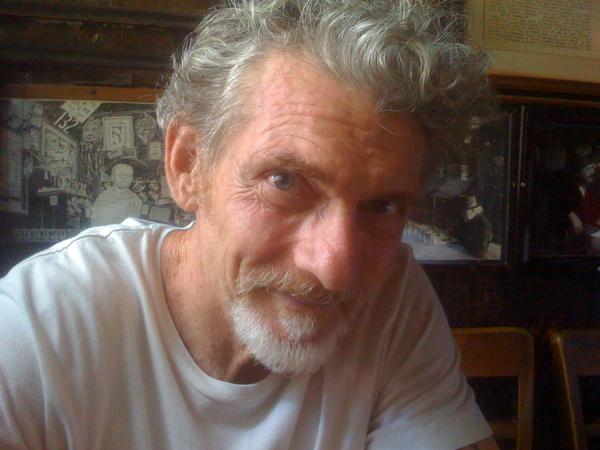 Don Bajema is the author of Winged Shoes and a Shield (City Lights, October 16, 2012), which collects stories from Reach and Boy in the Air, published in 1996 by Henry Rollins's imprint 2.13.61. Bajema toured the spoken-word circuit in the '90s with Rollins, Lydia Lunch and the late Jim Carroll and Hubert Selby, performing at hundreds of clubs, theaters and universities worldwide. As an actor, Bajema first appeared on stage in the West Coast premiere of Sam Shepard's Curse of the Starving Class. Earlier Bajema was a track and field athlete who competed in the 1972 U.S. Olympic trials. Now living in New York City, Bajema will help celebrate City Lights Publishers at Greenlight Bookstore in Brooklyn on November 14.
Don Bajema is the author of Winged Shoes and a Shield (City Lights, October 16, 2012), which collects stories from Reach and Boy in the Air, published in 1996 by Henry Rollins's imprint 2.13.61. Bajema toured the spoken-word circuit in the '90s with Rollins, Lydia Lunch and the late Jim Carroll and Hubert Selby, performing at hundreds of clubs, theaters and universities worldwide. As an actor, Bajema first appeared on stage in the West Coast premiere of Sam Shepard's Curse of the Starving Class. Earlier Bajema was a track and field athlete who competed in the 1972 U.S. Olympic trials. Now living in New York City, Bajema will help celebrate City Lights Publishers at Greenlight Bookstore in Brooklyn on November 14.
On your nightstand now:
Will in the World by Stephen Greenblatt. Very few things get me up from a chair as when I read an account of anecdotal history and the details of lives and times that have faded away into a world that we can't access in any other manner than through an author's research. When I run across the details of a forgotten time, linked to the present as all time is, I go nuts. I get up from the chair and walk around the room, pulling my fingers through my hair, looking for someone to relate one of those many gems like Mr. Greenblatt abundantly provides in his account of Elizabethan England: the excitement of the theater, the bear-baiting roar outside, the audience wandering in from watching a public execution. No police, no protection, just this teeming stew not far removed from magic. And then of course there's Shakespeare, a shadowy figure standing in the wings.
Favorite book when you were a child:
Fourth grade, bored into a state of hypnosis in the suburban landscape of San Diego, Calif. The beach, the border, the mountains and deserts still out of reach for a boy of 10, but soon, very soon. So, in steps Mark Twain, cigar smoke, ready-laugh spiced with a wry sarcasm, knowing somehow just the telling of the truth was an act of rebellion. And Huckleberry Finn walks down our block, lawn birds firing mists in the hot evenings, and we go into canyons at midnight, walking side by side along deer trails talking about that necessary freedom, that urge to break out, to ride a raft right through Andy Williams's "Moon River" until I was sure it was all. The Little League, the kids down the block, the sadness of the veterans' post-World War II lives, our barefooted recklessness on the way to school linked with Huck and Jim and his terrifying father, and those greasy cards strewn on the floor with his body. And I was still a child when Holden Caulfield leaned through the door of J.D. Salinger's study with his baseball cap on backward. Eudora Welty inspired me, also O. Henry.
Your top five authors:
This is impossible. Okay, I love Tennessee Williams's tragic insights. Cormac McCarthy has knocked me on my ass a few times. E.L. Doctorow has a hypnotic element. I have read Greil Marcus extensively; Mystery Train ignited something in me and his The Old, Weird America is as comforting as the Bible is for many others. Sam Shepard's work is like spending time with long-gone friends, deceased from mishap, or ground down from the grains in the hourglass. I have to pause here to say out loud the many names I am obliged to omit. But generous spirits all, I trust forgiveness.
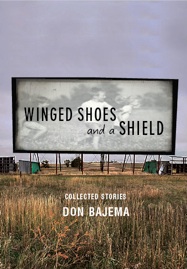 Book you've faked reading:
Book you've faked reading:
Faked reading? Faked reading? What? Faked reading. I am not the guy who fakes having read something. Luckily I've never had to endure the formalities associated with Ivory Tower Literature, never had to write papers, or discuss with erudite types anything that would make me feel I had to "catch up," "impress" or excuse myself.
Book you're an evangelist for:
Straight from the heart, The Book Thief by Markus Zusak.... often listed and considered "adolescent literature"--absolutely not. No way, no how, (and what is "adolescent literature" anyway?) My daughter, Epi, read it and then told me I was going to read it, and she proceeded to read it out loud to me two springs ago. Mr. Zusak writes so brilliantly, with such heart and ease and insight you just have to stop and admire as you go. He manages the neat trick of using his narrator, which is Death by the way, giving his account of a young woman caught within the Third Reich on a street that translates to "heaven." Zusak tells you the fate of so many of his main characters chapters ahead of time, and when the time comes, there you are sobbing anyway. Or I was. I'm bringing the book to prop on the stage beside me at my upcoming events, as I did years ago with Howard Zinn's A People's History of the United States. The Book Thief is every bit as powerful and significant as is Golding's Lord of the Flies. And every page I open to read I can hear my daughter's voice.
Book you've bought for the cover:
Bought albums for their covers, I remember a Tijuana Brass cover once, whipped cream motif. No books.
Book that changed your life:
Three, I'll be brief. Griel Marcus's Mystery Train. Sam Shepard's plays and short story collections. Jim Carroll's The Basketball Diaries. These combined to cause me to think my stories might be legitimate, and brought me to writing them.
Favorite line from a book:
"Eddie got happy and started ravin', jerked out his razor but he wasn't shavin,' " from Griel Marcus's Mystery Train. Not for the violence, or for the wrongheadedness of it all. But for the Americana, the vibrant desperate Saturday night release and adamance inherit in our culture, the necessary wildness in us all that is constantly muted and toned down, taking us from baying hounds of lust, and life force and urge to little lap dogs of safety and consensus and political correctness.
Book you most want to read again for the first time:
Tom Wolfe's The Pump House Gang, which was about surfer kids I knew, and the kid I was back in those days. Reading those accounts at a time in my life, early 20s, was pretty profound for me.
And Wolfe's The Purple Decades confirmed things I suspected had tremendous value, but had not been able to put into words.
If you could encourage any beginning writer, what would you say?
I'd say that there is absolute legitimacy in their experience, that in the mundane, in the everyday, in the silent struggle of family and culture and the need for expression (which is an ultimate freedom) every one of us has that right and that opportunity. We do not have to have ridden the bull, dived into the foxhole, lost a great love to have something of tremendous value to impart, and that to be a part of that tradition of storytelling is an incredible honor and a very friendly and accepting gathering. Yeah, writers are frequently eccentric and competitive and petty and jealous, but all in all, I'd say, "Get in there, overall it's a great party."
 Citing popular demand from independent booksellers, Random House is repeating its two-day transit program this holiday season for all frontlist and backlist titles in all formats at all imprints. Beginning November 1, orders from indies received in Random House's system by 3 p.m. EST will ship no later than the following business day, with a transit time of no more than two days "from dock to door." The program runs through the end of the year and the post-holiday restock season, until March 1, 2013.
Citing popular demand from independent booksellers, Random House is repeating its two-day transit program this holiday season for all frontlist and backlist titles in all formats at all imprints. Beginning November 1, orders from indies received in Random House's system by 3 p.m. EST will ship no later than the following business day, with a transit time of no more than two days "from dock to door." The program runs through the end of the year and the post-holiday restock season, until March 1, 2013.





 CBS This Morning has launched
CBS This Morning has launched  "In a digital economy where some of the Internet's biggest companies and the country's richest people have built their fortunes on the ability to more precisely target ads, one company sits on a trove of data it has barely started to exploit. In Internet advertising-speak, visitors to Amazon.com are further down the purchasing funnel than visitors to Google or Facebook," wrote Marcus Wohlsen in a Wired magazine article headlined "
"In a digital economy where some of the Internet's biggest companies and the country's richest people have built their fortunes on the ability to more precisely target ads, one company sits on a trove of data it has barely started to exploit. In Internet advertising-speak, visitors to Amazon.com are further down the purchasing funnel than visitors to Google or Facebook," wrote Marcus Wohlsen in a Wired magazine article headlined "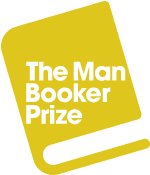 Just a day after basking in the glow of this year's Booker Prize celebration, Man Group announced it will
Just a day after basking in the glow of this year's Booker Prize celebration, Man Group announced it will 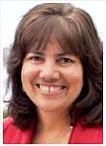 Barbara Freethy has sold one million Nook Books through PubIt, Barnes & Noble's self-publishing option. The author of Summer Secrets and When Wishes Collide has published 17 of her backlist titles and three original e-books on the platform.
Barbara Freethy has sold one million Nook Books through PubIt, Barnes & Noble's self-publishing option. The author of Summer Secrets and When Wishes Collide has published 17 of her backlist titles and three original e-books on the platform.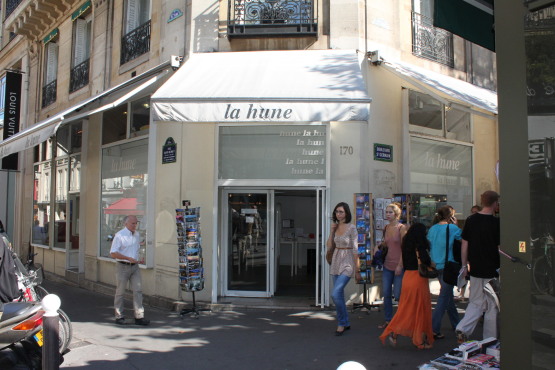 Located in a neighborhood "with a long literary history," the space, previously occupied in part by historic Paris bookstore La Hune, "will become part of an expanded Louis Vuitton boutique" once its literary salon days are over, though Jacket Copy offered a measure of reassurance: "Never fear; La Hune has survived. It has moved to a corner a block away. The nearby bookstore will come in handy; some guests at the Louis Vuitton literary salon may be looking for books about something other than travel."
Located in a neighborhood "with a long literary history," the space, previously occupied in part by historic Paris bookstore La Hune, "will become part of an expanded Louis Vuitton boutique" once its literary salon days are over, though Jacket Copy offered a measure of reassurance: "Never fear; La Hune has survived. It has moved to a corner a block away. The nearby bookstore will come in handy; some guests at the Louis Vuitton literary salon may be looking for books about something other than travel."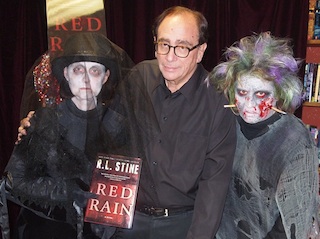 On Wednesday night,
On Wednesday night, 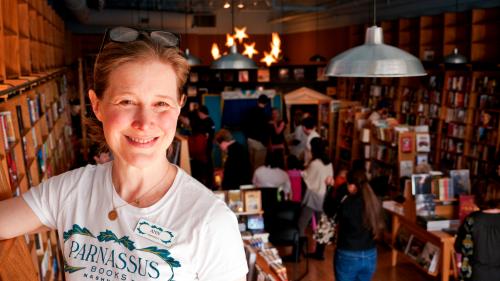 The magazine wrote about Parnassus: "You are what you read, and the late 2010 closing of bookstore Davis-Kidd left a void in many of our hearts--and our bookshelves. Fortunately, local author Ann Patchett came to our rescue with the November 2011 opening of Parnassus Books. Located in the same zip code, but in a cozier, more intimate space, Parnassus offers prime real estate to local authors, promotes book clubs and community events, and boasts a lovingly curated children's section that will instantly transport you back to the days when you broke your bedtime curfew and read under the covers with a flashlight."
The magazine wrote about Parnassus: "You are what you read, and the late 2010 closing of bookstore Davis-Kidd left a void in many of our hearts--and our bookshelves. Fortunately, local author Ann Patchett came to our rescue with the November 2011 opening of Parnassus Books. Located in the same zip code, but in a cozier, more intimate space, Parnassus offers prime real estate to local authors, promotes book clubs and community events, and boasts a lovingly curated children's section that will instantly transport you back to the days when you broke your bedtime curfew and read under the covers with a flashlight."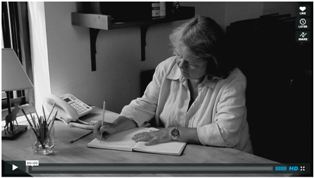
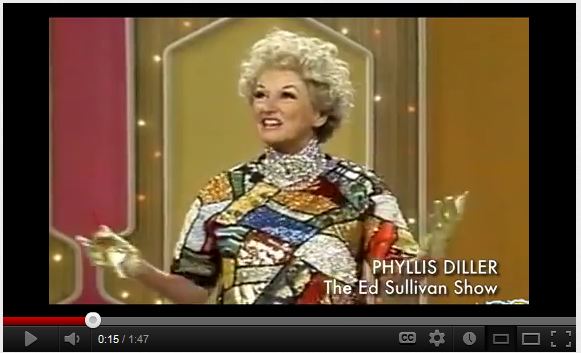 We Killed: The Rise of Women in American Comedy
We Killed: The Rise of Women in American Comedy
 Book you've faked reading:
Book you've faked reading: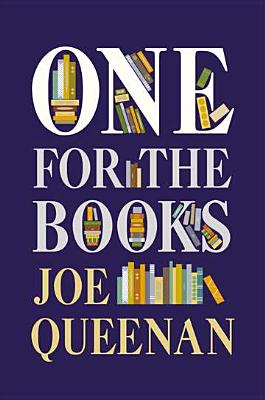 As anyone familiar with the work of Joe Queenan would expect, One for the Books might just be one of the most sarcastic book about books ever written. What may come as a surprise to fans of Red Lobster, White Trash and the Blue Lagoon and other Queenan titles, though, is that the habitually acerbic cultural critic has a huge soft spot for books, one he displays abundantly in this memoir of his passionate reading life.
As anyone familiar with the work of Joe Queenan would expect, One for the Books might just be one of the most sarcastic book about books ever written. What may come as a surprise to fans of Red Lobster, White Trash and the Blue Lagoon and other Queenan titles, though, is that the habitually acerbic cultural critic has a huge soft spot for books, one he displays abundantly in this memoir of his passionate reading life.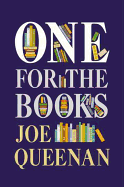
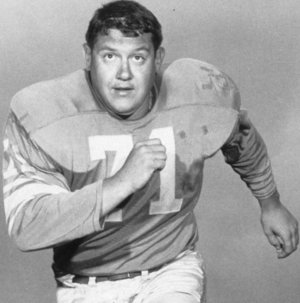 Then there's Alex Karras, a former All-Pro defensive tackle for the Detroit Lions who
Then there's Alex Karras, a former All-Pro defensive tackle for the Detroit Lions who